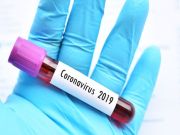WEDNESDAY, July 1, 2020 (HealthDay News) — A blood test may predict which COVID-19 patients are likely to need a ventilator.
This finding could lead to a scoring system that would flag at-risk patients for closer monitoring and to personalized treatments. It may also help explain how diabetes makes outcomes worse, according to researchers from the University of Virginia School of Medicine.
The study focused on 57 COVID-19 patients who needed a ventilator to breathe. Researchers compared samples of their blood to that from patients who did not need a ventilator.
They found that blood levels of a certain cytokine are predictive of the course of COVID-19. Cytokines are proteins that are central to the immune system overreaction known as a cytokine storm. This overactive immune response is a hallmark of COVID-19 and some other illnesses.
“The immune response that we discovered to predict severe shortness of breath in COVID-19 is known in other pulmonary diseases to cause damage,” said researcher Dr. Bill Petri, chief of the Division of Infectious Diseases and International Health at UVA in Charlottesville.
“So this could lead to a novel way to prevent respiratory failure in individuals infected with the new coronavirus, by inhibiting this immune cytokine,” he said in a university news release.
Petri said his team plans to test this in a model before considering a clinical trial.
Researchers also found higher levels of two cytokines in patients with high blood sugar. They said this may explain why diabetes is linked with worse COVID-19 outcomes.
Though researchers linked two other cytokines to severe infection, they were less reliable predictors of the need for a ventilator.
According to Petri, the finding on cytokines sheds light on how the immune system reacts to coronavirus infection and may help doctors to develop immune therapy for COVID-19.
Researchers shared their findings June 28 on the website medRxiv.org. The study has not been peer-reviewed and should be considered preliminary.
More information
For more on COVID-19, visit the U.S. Centers for Disease Control and Prevention.
Copyright © 2026 HealthDay. All rights reserved.

